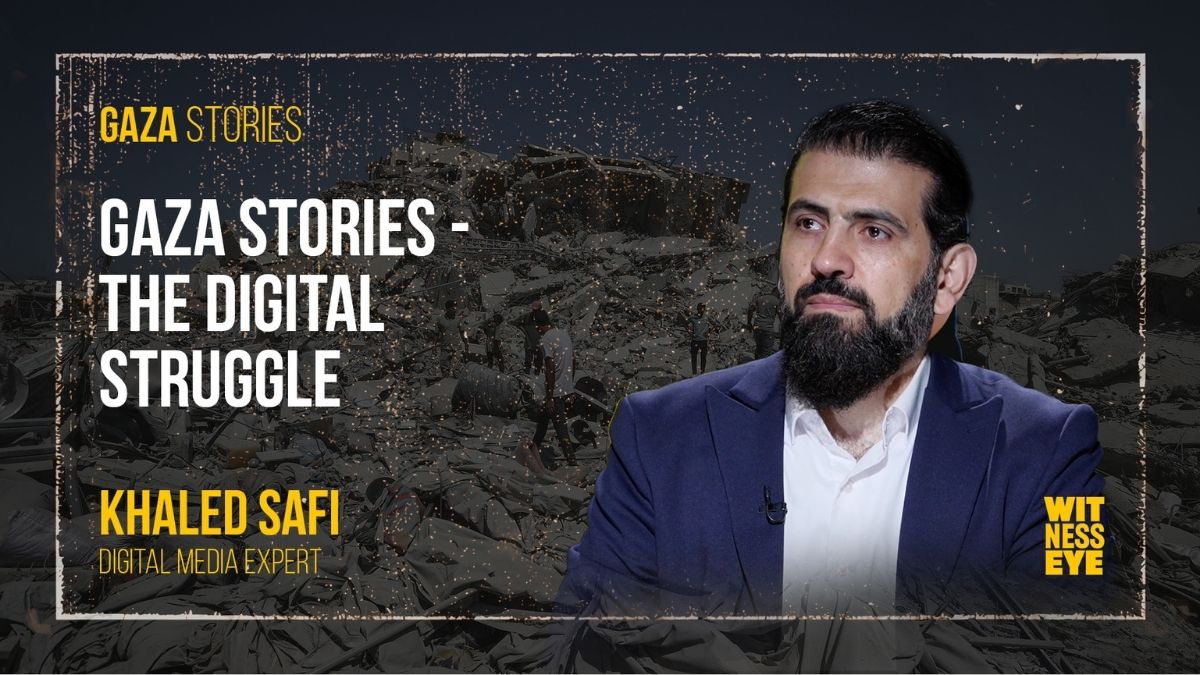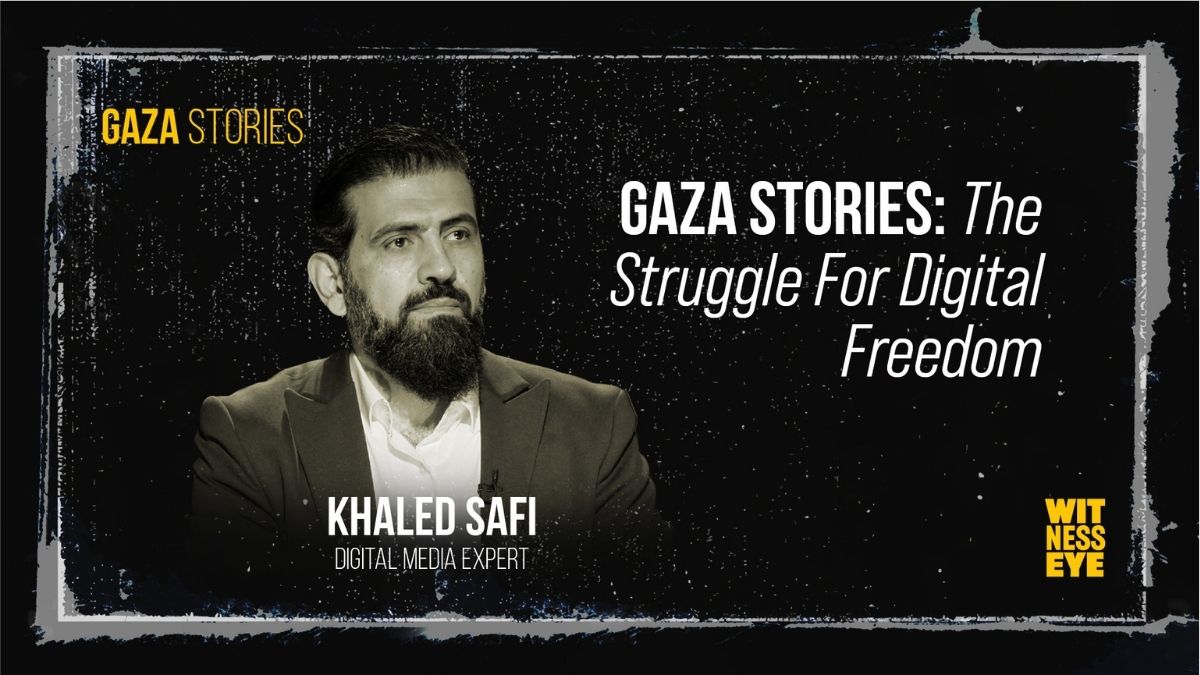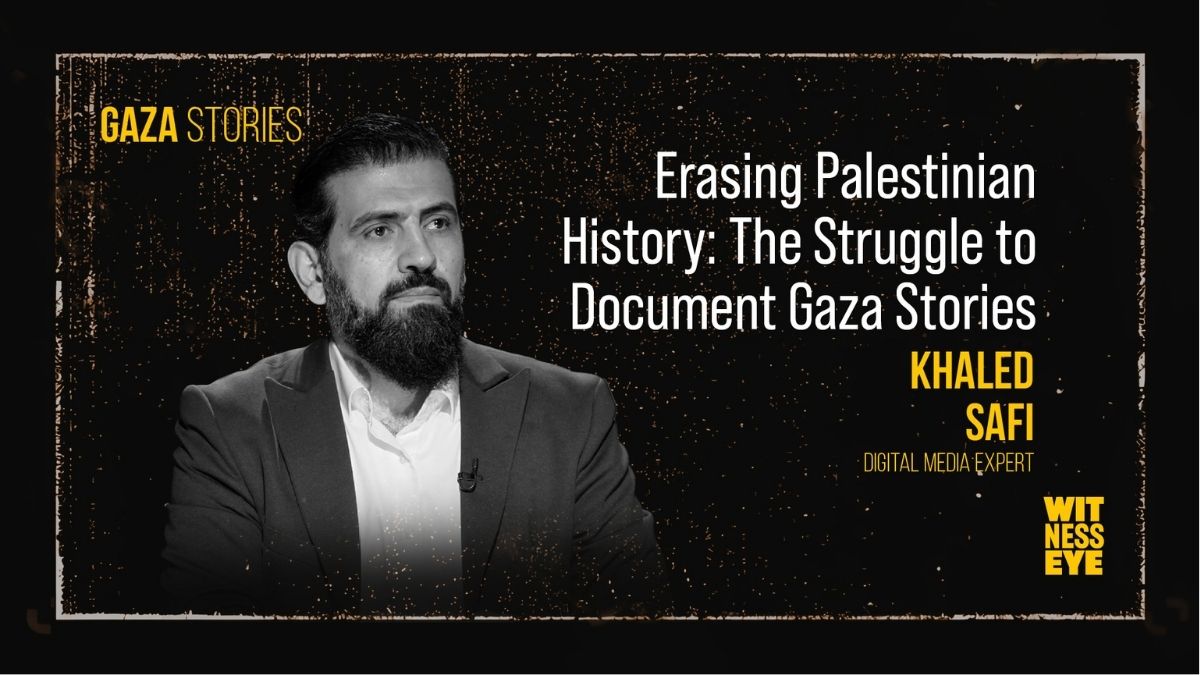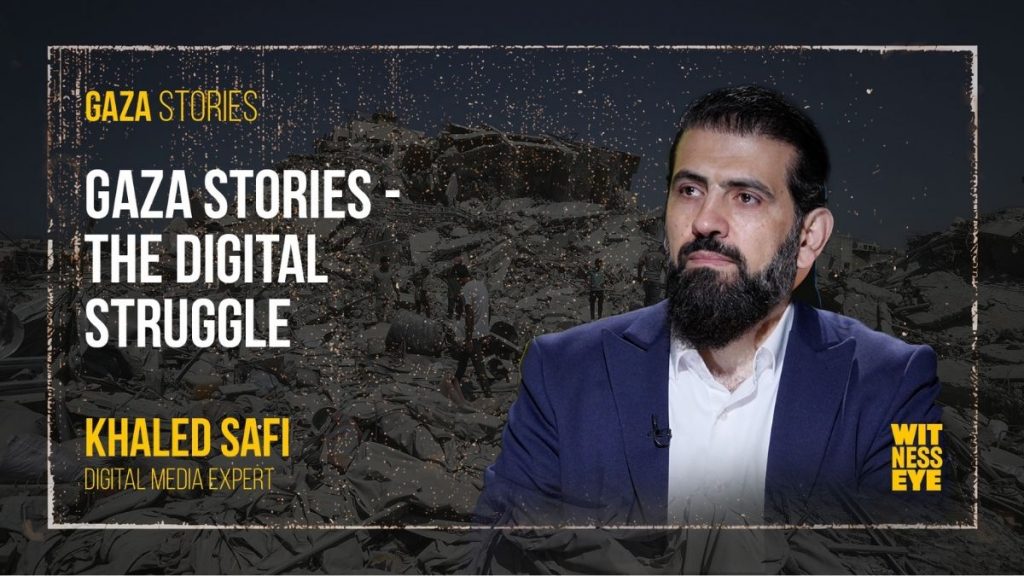
In the midst of a brutal conflict that has left Gaza in ruins, digital media has emerged as a battleground. As the Israeli occupation wages war on the ground, it also extends its reach into the digital world, attempting to suppress the Palestinian narrative. One person who has been on the frontlines of this digital war is Khaled Safi, a digital media expert from Gaza. His story, intertwined with both personal tragedy and professional battle, reveals the fierce struggle to keep the Palestinian voice heard, despite the overwhelming efforts to silence it. Gaza Stories – The Digital Struggle

Gaza Stories: The Struggle For Digital Freedom
Professor Khaled Safi, a digital media expert, shares his personal experience and professional journey in digital media. From Khan Younis in Southern Gaza, Khaled has spent years using social media to amplify Palestinian voices. His work on platforms like LinkedIn, Instagram, and X has aimed to combat the erasure of Palestinian content online.
Khaled’s digital media journey began in 2012, conducting training for journalists reporting on the Palestinian cause. Trained by the United Nations, he helped educate others and provided a platform for international audiences to hear Gaza’s truth. His work was especially crucial during the Gaza War escalation when social media became essential for documenting and sharing real-time experiences.
“I lived through all the previous wars, but this time, we’ve witnessed genocide on an unprecedented scale. The virtual world is as much a battlefield as Gaza itself,”
says Khaled.
Personal Tragedy: Family Loss and Resilience
Before discussing digital media, Khaled reflects on the human cost of the war. On October 7th, during Israel’s assault on Gaza, his nephew, a young man about to marry, was martyred. This personal loss represents the broader suffering of many Palestinian families. Despite the pain, Khaled draws strength from his family’s sacrifice, seeing it as a part of the Palestinian fight for justice and liberation.
“My nephew, just 25 years old, was among the martyrs that day. He was ready to start his life, but instead, he gave his life for the land,” Khaled says, his voice heavy with emotion.
Khaled’s family, like many in Gaza, has endured not only the loss of loved ones but also the destruction of their home. Nearly 87% of buildings in Khan Younis have been destroyed. His family now lives in a tent on what remains of their former home, facing the devastation caused by the continuous bombardment.
“The destruction of our home, our memories, and our lives—everything is gone. My family is now struggling to survive amidst the ruins,” Khaled explains.
Gaza’s Digital Battlefield: The Erasure of Palestinian Content
As the war on the ground intensifies, so too does the battle in the digital space. Khaled highlights the efforts by tech giants like Meta (formerly Facebook) to silence Palestinian voices online.
According to a report from 7amleh, a Palestinian organization monitoring digital rights, over 25,000 violations against Palestinian content were recorded in 2024 alone.
Social media platforms, under pressure from the Israeli government, have increasingly been removing content related to the Palestinian cause.
“There is a systematic effort to erase Palestinian digital content. It’s not just about deleting posts—it’s about erasing an entire narrative,” says Khaled.
One of the most notable examples of this censorship is Meta’s response to Israeli requests. These actions include removing images, videos, and even entire accounts that document atrocities in Gaza.
The Role of Shadow Banning in Silencing Gaza
Khaled explains the impact of shadow banning, where Palestinian content is hidden. “When we speak about Gaza and genocide, our content only reaches a fraction of people,” he says. This subtle censorship is as harmful as content removal. Activists, journalists, and organizations like Quds News face this tactic. Khaled himself experienced shadow banning despite a large following on platforms like LinkedIn and Instagram. “It’s not just about deleting accounts; it’s about making us invisible,” he adds.

Erasing Palestinian History: The Struggle to Document Gaza Stories
Khaled highlights the erasure of Palestinian history through content suppression. Every deleted post, every hidden story, contributes to this global effort. He questions the international community’s response: “Where are the human rights organizations? Where is global media?” he asks.

The Fight for Justice: From Gaza to the World
Khaled believes the fight for justice persists. The Palestinian struggle, especially Gaza’s, is the most documented war in history. Activists and journalists use every tool to share the truth. Witness Eye and others ensure that, even if deleted, the truth survives. “Despite all efforts to silence us, our voices will not be drowned out,” Khaled concludes.

Moving Forward: Strengthening the Palestinian Narrative
Khaled’s final message is one of hope and determination. He calls for a united effort among Palestinians, activists, and global supporters to strengthen the Palestinian narrative in the digital world. He believes that by archiving content, supporting Palestinian platforms, and challenging the systemic repression by corporations like Meta, the Palestinian cause can continue to reach a global audience.
“The future of the Palestinian narrative depends on us. We must fight in the digital space just as much as we fight on the ground. Every post, every story shared is a victory in the struggle for justice,” Khaled concludes.
Now, hear the testimony of Professor Khaled Safi in his own words—digital media expert from Khan Younis, witness to war and loss—carrying Gaza’s grief, memory, and unyielding call for justice into the record of history.
